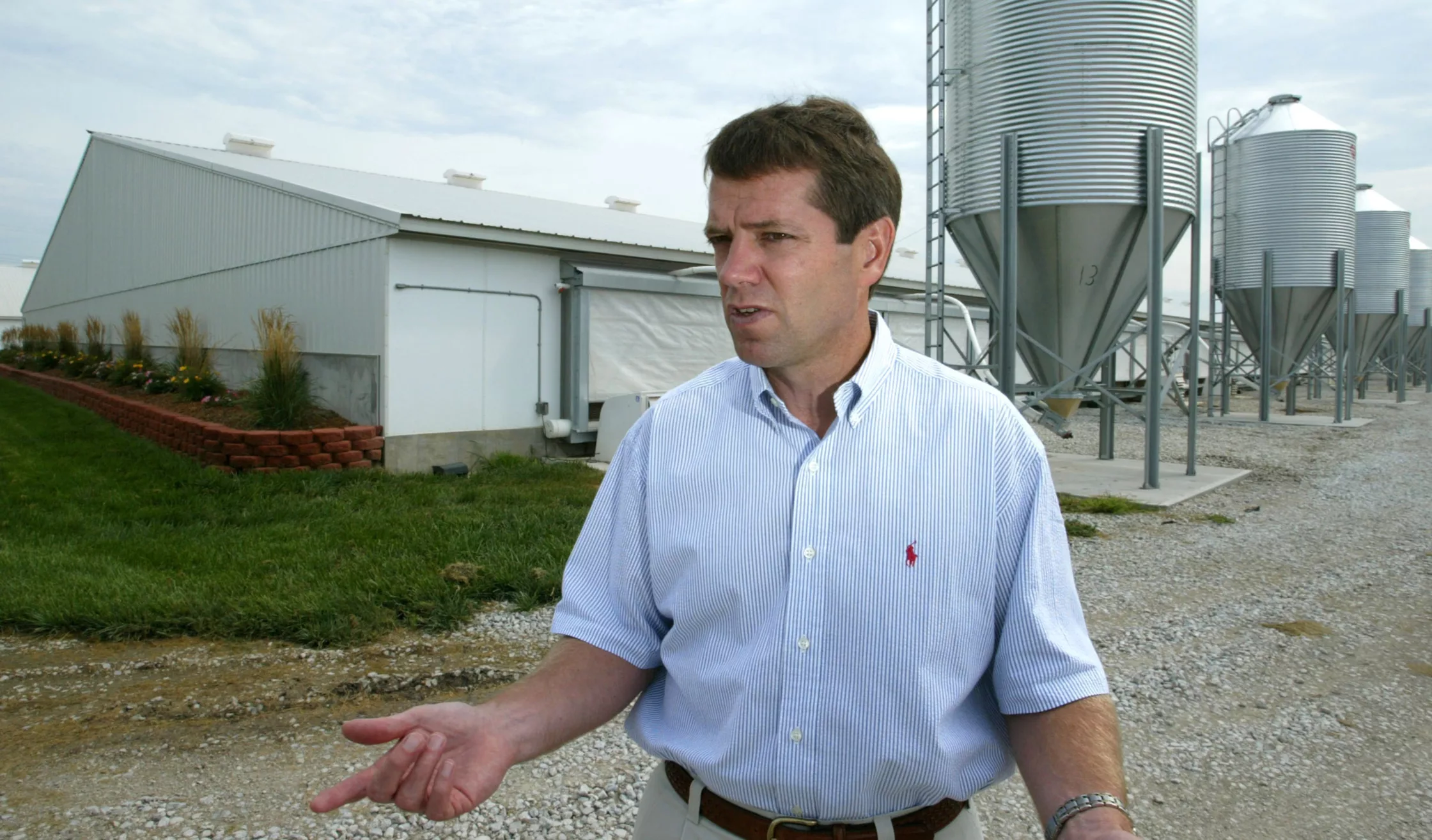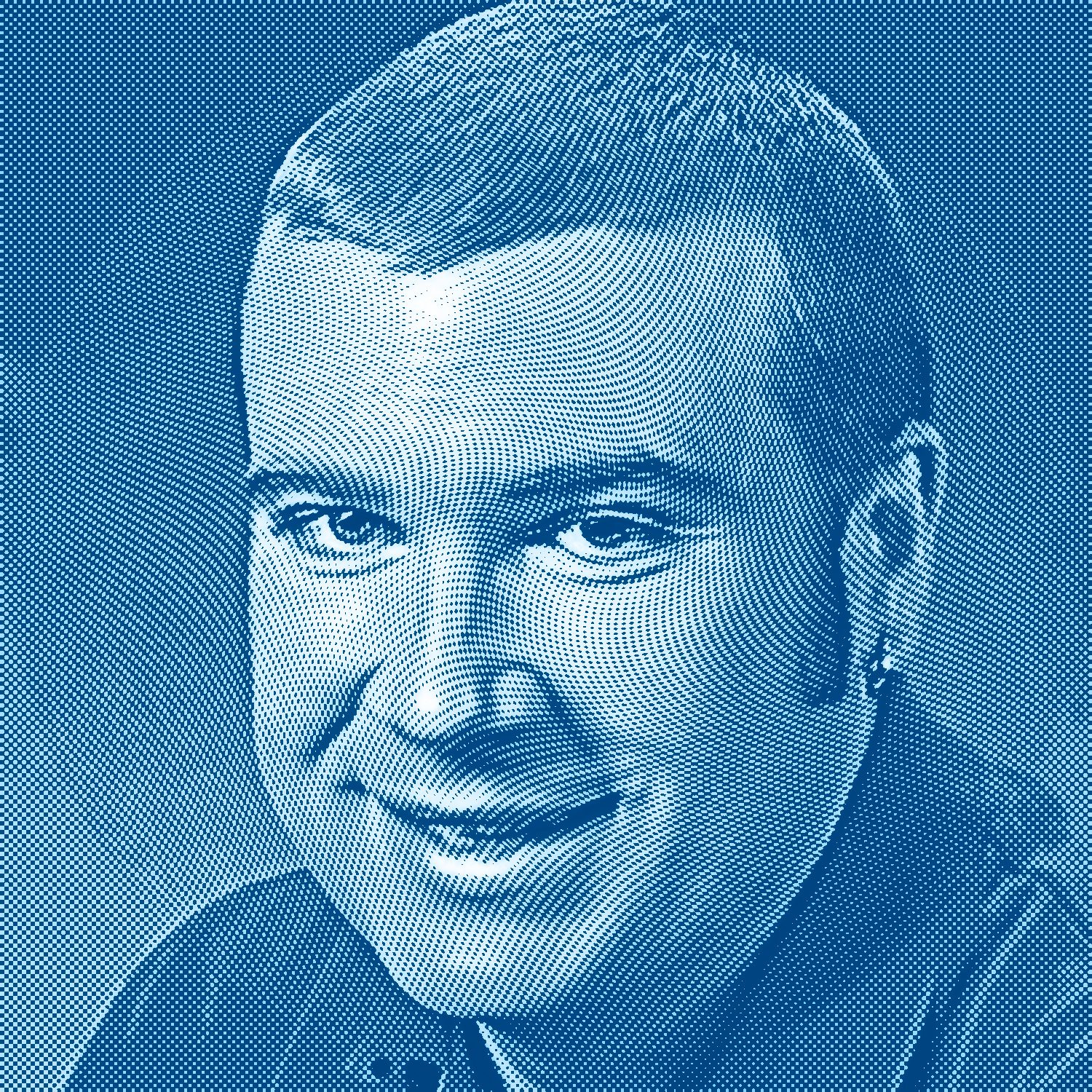This timeline was published with the first story in our series “Pigs and Power.” Read more »
1982 Initiative 300, banning corporations from owning farms, is enacted. 1983 Pillen and his father start raising hogs on a “dirt lot.” 1991 A veterinarian, Pillen begins consulting for a “major genetic supplier.” 1992 Pillen forms Pillen Livestock Production Company to “formalize” the operation with his father. It has 60 sows, which are female hogs. 1993 Pillen buys a 3% ownership stake in Furnas County Farms, a $25 million confinement complex mostly owned by Chuck Sand. Pillen enters into a verbal agreement to manage the farms. He also forms Platte Center West Partnerships with another partner. Because of these two moves, he starts Progressive Swine Technologies, or PST. 1994 Pillen builds his first hog farm, Platte Center, with 5,100 swine. Pillen hires Deb Rasby, who previously worked at a company owned by Nebraska pork heavyweight Chuck Sand. 1995 Pillen’s company PST begins managing Bartlett Foods, then owned by Ken Morrison. (Pillen purchased it in 2012.) Bartlett Foods was then a 5,100 pig farm, nursery and finish system with feed mill. In December, Pillen signs an agreement with Furnas County Farm Partners, owned by Chuck Sand, to not hire away employees from one another for at least two years 1996 PST starts managing Inland Foods, a 5,100 hog farm, nursery and finish system with feed mill. Pillen owned 27%. Ken Morrison owned the rest. On April 15, 1996, Pillen agreed to sell his 3% stake in Furnas Farms for $270,000. The same day, he entered into a management consultant agreement with Furnas Farms to manage the farm for five years. 1997 PST starts managing Northern Plains, of which Pillen owns 50%, and GGP, of which Pillen owns 33.3%. GGP is a 15,000 head farrow-to-finish business. Also, Pillen allegedly hires or tries to hire six Sand employees, which Sand argues breaches the agreement Pillen signed. Pillen’s lawyers argue the mutual non-employment agreement is an “unenforceable restraint on trade.” 1998 PST starts managing Northern Nance, of which Pillen owns 70%, and PST Gene Center, of which Pillen owns 80%. PST makes its first appearance on Pork Powerhouses, ranked 22nd. 2001 PST started managing PST Milling, of which Pillen owns 70%. 2002 PST starts managing Double D, of which Pillen owns 65%. 2003 Pillen buys into a “small, local genetic supplier” named Danbred North America, which is the North American unit of a Danish company. PST begins managing Danbred North America, of which Pillen owns 33%. 2004 PST starts managing JDP, which was formed by Pillen to start conducting business in South Dakota. Pillen owns 100% of this company. 2007 Initiative 300 is ruled unconstitutional. 2008 PST starts managing Imperial Foods. Pillen owns 100% of Imperial Foods. 2012 Pillen states in a letter he plans to liquidate PST and discontinue cash distributions to his former business partners. “Cash from operations will be reinvested in the companies to fund future operations,” he writes. PST is renamed Pillen Family Farms. In November, he’s elected as a University of Nebraska regent. 2013 Pillen purchases all of Danbred North America and renames it DNA Genetics. A former Pllen business partner is named the company’s CEO. 2018 Pillen Family Farm completes “final piece of vertical integration” by purchasing former Hormel meatpacking plant in Fremont, through its ownership in Wholestone Farms. 2021 Pillen announces he’s running for governor. Wholestone Farms announces plans to build a slaughterhouse inside the city limits of Sioux Falls, South Dakota. 2022 Pillen is elected governor. Voters in Sioux Falls narrowly approve Wholestone’s plan to continue to build its meatpacking plant.



